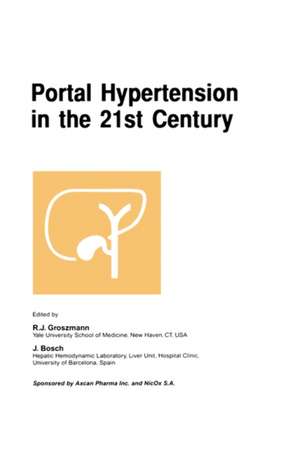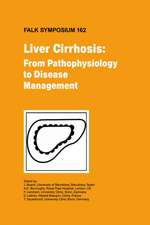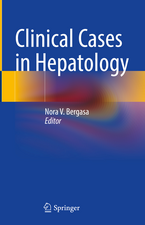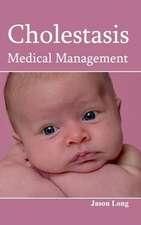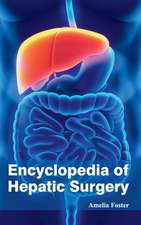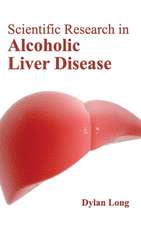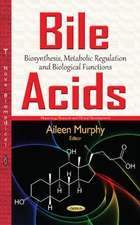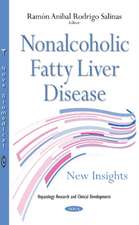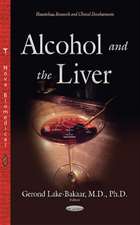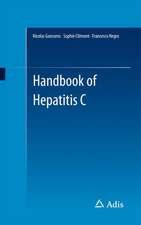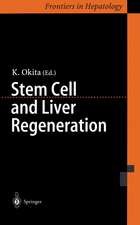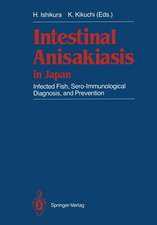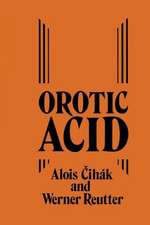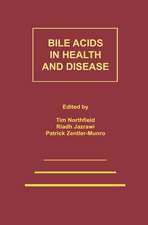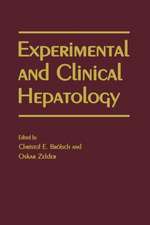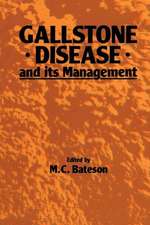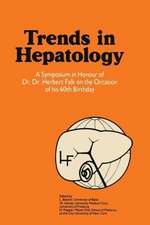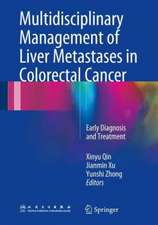Portal Hypertension in the 21st Century: The proceedings of a symposium sponsored by Axcan Pharma Inc. and NicOx S.A., held in Montrél, Canada, April 2–4, 2004
Editat de R.J. Groszmann, J. Boschen Limba Engleză Hardback – 17 aug 2004
This book contains the papers presented and discussed during the Symposium on 'Portal Hypertension in the 21st Century', held in Montréal, Canada, in April 2004, and sponsored by Axcan Pharma Inc. and NicOx S.A. There are eight sections covering basic mechanisms, new drugs, prevention and current treatment of variceal bleeding, prevention of recurrent bleeding and hepatic hemodynamic monitoring.
An international faculty of authors have contributed chapters at an outstanding scientific level which will be vital reading for scientists and clinicians alike.
| Toate formatele și edițiile | Preț | Express |
|---|---|---|
| Paperback (1) | 1099.56 lei 6-8 săpt. | |
| SPRINGER NETHERLANDS – 29 oct 2012 | 1099.56 lei 6-8 săpt. | |
| Hardback (1) | 1106.50 lei 6-8 săpt. | |
| SPRINGER NETHERLANDS – 17 aug 2004 | 1106.50 lei 6-8 săpt. |
Preț: 1106.50 lei
Preț vechi: 1164.73 lei
-5% Nou
Puncte Express: 1660
Preț estimativ în valută:
211.80€ • 230.13$ • 178.02£
211.80€ • 230.13$ • 178.02£
Carte tipărită la comandă
Livrare economică 21 aprilie-05 mai
Preluare comenzi: 021 569.72.76
Specificații
ISBN-13: 9780792387978
ISBN-10: 079238797X
Pagini: 370
Ilustrații: XVIII, 370 p.
Dimensiuni: 155 x 235 x 22 mm
Greutate: 0.72 kg
Ediția:2004
Editura: SPRINGER NETHERLANDS
Colecția Springer
Locul publicării:Dordrecht, Netherlands
ISBN-10: 079238797X
Pagini: 370
Ilustrații: XVIII, 370 p.
Dimensiuni: 155 x 235 x 22 mm
Greutate: 0.72 kg
Ediția:2004
Editura: SPRINGER NETHERLANDS
Colecția Springer
Locul publicării:Dordrecht, Netherlands
Public țintă
Professional/practitionerCuprins
1 Portal hypertensive syndrome: its importance and complications.- 2 The vascular endothelium and nitric oxide.- 3 Endothelial-derived nitric oxide as a marker for healthy endothelium.- 4 Mechanisms of hepatic fibrogenesis.- 5 The role of hepatic stellate cells/myofibroblasts.- 6 Structural changes in the liver leading to cirrhosis and portal hypertension.- 7 The paradox: vasoconstriction and vasodilation.- 8 Nitric-oxide-mediated vasodilation and portal hypertension.- 9 Impaired vasodilation in cirrhotic livers.- 10 Enhanced release of vasoconstrictors.- 11 Endogenous cannabinoids and circulatory dysfunction in cirrhosis.- 12 NCX-1105: a liver-specific NO donor.- 13 Possibilities of manipulating NO biosynthesis in the treatment of portal hypertension: statins.- 14 Pathophysiological role of Akt and endothelial nitric oxide synthase in cirrhosis.- 15 Nitric oxide synthase gene transfer.- 16 Inhibition of nitric-oxide-mediated vasodilation (including K+ channels).- 17 Esophageal varices: from appearance to rupture; natural history and prognostic indicators.- 18 Pathophysiology of variceal bleeding.- 19 Approaches to the management of pediatric portal hypertension: results of an informal survey.- 20 Therapeutic tools in portal hypertension: drugs.- 21 Endoscopy in the management of portal hypertension.- 22 Transjugular intrahepatic portosystemic shunt (TIPS): current indications.- 23 Prevention of first variceal bleeding: drugs.- 24 Prevention of first variceal bleeding: endoscopy.- 25 Treatment of acute variceal bleeding: general management and prevention of infections.- 26 Hemostatic treatments.- 27 Prevention of recurrent portal hypertensive bleeding.- 28 Cost-effectiveness of primary prophylaxis for esophageal variceal bleeding.- 29 The cirrhotic patient with no varices and with small varices.- 30 Gastric varices.- 31 The patient who cannot receive beta-blockers.- 32 Hepatic venous pressure gradient: the facts.- 33 Hemodynamic monitoring: implications for randomized controlled trials and clinical practice.- 34 What to do with non-responders.- 35 What else we need.
